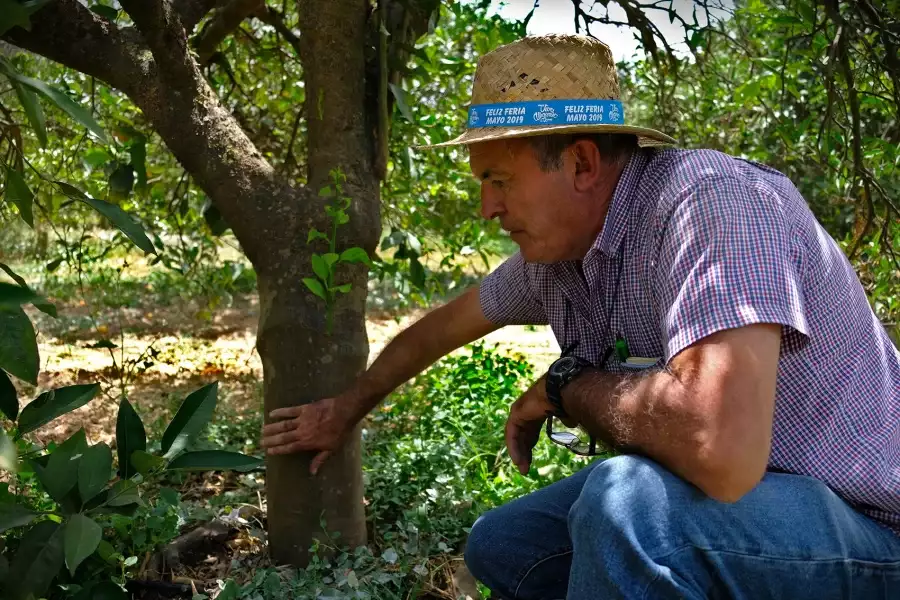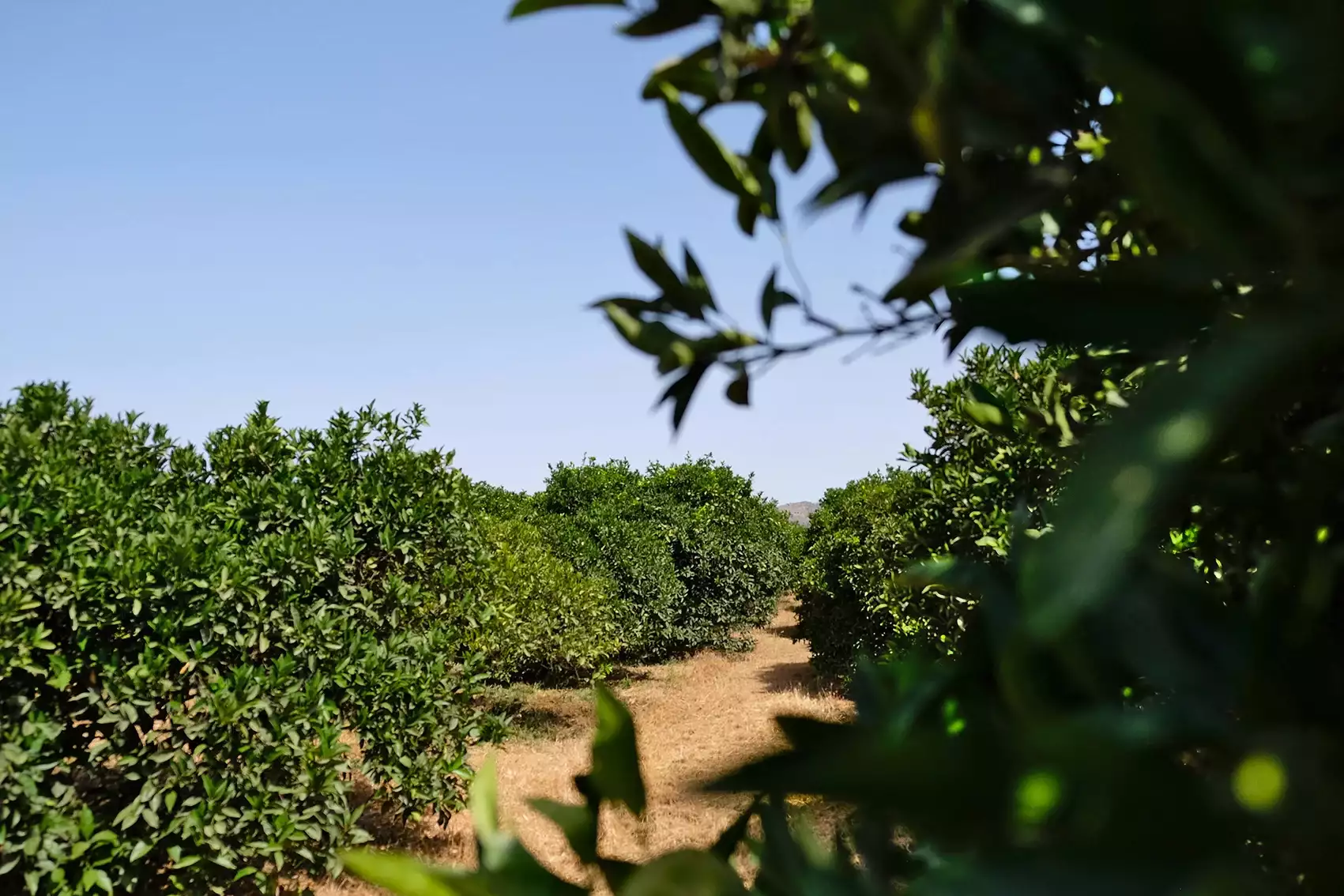Little water, lots of flavour
The Spanish family business Citricos El Romeral defies the water shortage in the sunny region of Málaga with hierba and clever technology.
South-west of Málaga, fourteen organic fincas nestle, one after the other, on the riverbed of the Río Guadalhorce. Although this is one of the most water-rich rivers in Andalusia, its name carries a quiet warning. In Arabic, Guadalhorce means River of the Silent - and in view of climate change, the once abundant water masses are threatening to become silent at some point. But Naturland farmer Miguel Ángel is not letting it get him down.
Sunshine for the sweetie
With a grin of anticipation on his face, Miguel Ángel reaches with both arms into the dense foliage of an orange tree. Under the dark greenery, with a skillful twist of the branch, he unearths his treasures that had just been hiding under the leaves. He plucks a fruit from the branch, peels it routinely, puts an orange wedge in his mouth, beams and explains confidently: "Our fruits from the Málaga region are sweeter than those from Valencia or Huelva. Because there are no extreme temperature fluctuations here, but all the more sun. And you can taste that!" But the hot sun, which gives his fruit its special sweetness, is also his biggest operational risk with increasing drought.

Miguel Ángel inspects the trees on the plantation and checks the drip irrigation. Source: Ina Hiester
Drops instead of floods
Miguel Ángel is the second generation to run Citricos El Romeral. "Normally it rains here in autumn and winter. This year, all the rain fell in March and April. Rainfall is increasingly difficult to predict, and the water in the river is also finite. In the past, our orange and lemon groves were simply flooded regularly via these small canals for irrigation," the farmer tells us, pointing to some remains of the waterways called acequia. But those days are long gone. Today, the precious wet is distributed drop by drop in his fincas with an irrigation systems. "Drip irrigation is efficient, but maintenance-intensive. We have to keep a constant eye on the systems, because a hose can get clogged or broken somewhere on our 110 hectares at any time," he points out. In order to irrigate even more economically, he had a solar-powered measuring system installed. With the help of an app, he can determine the soil moisture at any time - not only on the surface, but also in the deeper soil layers. Water pressure and the irrigation rhythm can then be adjusted as needed. While his neighboring farms irrigate according to a fixed schedule, Miguel Ángel's orange and lemon trees only get water when they really need it.
Hierba helps
"Our Fincas have been certified organic since 2013. For me, the biggest change at that time was coming to terms with weeds - or even making friends with them”, the farmer recalls. Today, they are an integral part of his water management system, because they protect the soil from drying out. Again and again he crouches down, inspects what is growing and classifies it into buena hierba (good weed), mala hierba (bad weed), hierba de verano (summer weed) and hierba de invierno (winter weed). "The wood anemone that covers all the ground here may look pretty, but it is invasive. It climbs up the trees and steals the sunlight they need for photosynthesis," he explains. Miguel Ángel's business is an ongoing balancing act. Good herb, bad herb, lots of sun, little water. But he is determined to make the best of it.

Naturland campaigns worldwide for sustainable water management in the production of organic food. Source: Ina Hiester
Water is precious. Therefore, every Naturland farm must be able to prove that its operations do not impair water quality. In regions with scarce water resources, farms must fulfil extended Naturland requirements. Specifically, farms located in World Resources Institute-defined Water Risk Zones 4 or 5 must:
For sustainable water management, Naturland offers training in five languages.
This text is a translation. No guarantee can be given for the correctness.